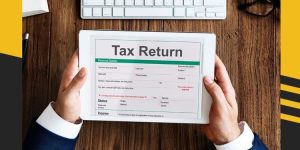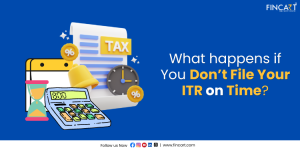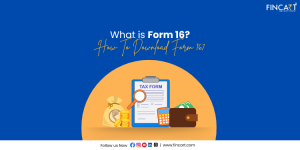Table of Contents
ToggleWe’ve all heard the old saying “The only certainties in life are death and taxes.” While there’s no escape from either, we can certainly make one of them more manageable. You work hard and you climb the ladder of success and with each rung, your income goes up, and so does your tax bill. It’s like there’s a hidden cost of success. But what if there were ways to legally reduce your tax burden while keeping your financial future on the right track? Well there are, and in this blog, we’re going to explore these smart strategies for tax planning for high-income earners who want to make the most of their hard-earned money. So, let’s dive in and discover how you can keep more of what you earn.
Understanding High Earner Taxation
First, let’s take a moment to understand the taxation framework. The Budget 2020 introduced a new tax regime with altered tax slabs and concessional tax rates. As a taxpayer, you have a choice to opt for either the old regime or the new regime. Those who opt for the new regime enjoy lower tax rates however they cannot claim deductions and exemptions such as the ones listed under Section 80C, 80D, House Rent Allowance, Leave Travel Allowance and many others. These rebates continue under the old regime but at a higher tax rate. As of 2023, the tax rate for those with income between ₹12.5 lakh and ₹15 lakh is 30% under the old regime and 20% under the new regime. The tax rate for those earning above ₹15 lakh is the same under both regimes at 30%.
High earners with income above ₹15 lakh fall into the highest tax bracket and have to pay a large portion of their income to taxation. Now that we have a clear understanding of how taxation for high earners works, let’s take a look at some smart tax planning strategies by the top tax consultant that can help you optimise your finances.
Utilize Tax-Advantaged Investment Options
As a high-income earner, one of the most effective ways to reduce your tax liability is by making use of tax-advantaged investment options such as
- Public Provident Fund (PPF)
- Employee Provident Fund (EPF)
- National Savings Certificate (NSC)
- Equity-Linked Saving Scheme (ELSS)
- Unit Linked Insurance Plans (ULIPs)
- Tax-saving Fixed Deposits (FDs), and other
These instruments come under Section 80C of the Income Tax Act, which allows you to claim deductions up to ₹1.5 lakh from your gross total income. By investing in these options, you can not only reduce your taxable income but due to the high return potential of some of these instruments you can also secure your financial future.
Also Read: Have You Claimed These ITR Deductions on Section 80C, 80CCD & 80D?
Optimize Salary Structure:
Many elements in your salary structure such as House Rent Allowance, Leave Travel Allowance, food coupons, car maintenance, medical allowance, etc. come with tax benefits. If your employer offers you a flexible pay structure, you can optimise it by allocating a portion of your salary as various allowances, reimbursements, and benefits. Some of these components are tax-exempt which can considerably reduce your overall taxable income.
Don’t fall behind your taxes!
Get in touch with Fincart to handle your taxes and optimize your savings.
Take Advantage of Tax Deductions
Apart from Section 80C deductions, there are many other tax deductions available to high earners. These deductions are listed in Section 80D of the Income Tax Act and they can significantly reduce your taxable income.
For instance, you can claim up to ₹ 25 thousand as deductions on health insurance premiums for yourself and your family. If your parents are senior citizens, you can claim additional deductions up to ₹50 thousand. Not only does this help with your tax liability but also acts as a shield in case you or your loved ones are hit with unexpected medical bills.
Different sections of the IT Act also offer deductions, such as on home loan interest in Section 24 or HRA in Section 10. If you make donations to charitable institutions, you can claim deductions between 50% to 100% under Section 80G. Proper tax planning is very important to keep meticulous records and to claim these deductions to maximise your tax savings.
Invest in Tax-Efficient Funds
Look for investment options that offer tax efficiency, such as Equity-Linked Savings Schemes. It is a mutual fund scheme that can be an excellent option as it not only offers the potential for a high return of up to 15% but also comes with a lock-in period of three years, which makes it eligible for tax deductions under Section 80C. This isn’t it, the long-term capital gains from ELSS are tax-exempt, which makes them an attractive choice for high earners who are looking to grow their wealth while minimising their tax burden.
Explore Tax-Exempt Allowances
As a salaried employee, there are many tax-exempt allowances that you receive. Under the Income Tax Act, you can reduce your taxable income through them. These allowances such as Leave Travel Allowance, House Rent Allowance, Children’s Education Allowance, Relocation Allowance, Medical Allowance, Conveyance Allowance, and others can be utilised to lower your tax liability while enjoying additional financial benefits.
Consider Tax-Efficient Real Estate Investments
Traditionally, real estate investments have been a great way to grow wealth, but it’s important to approach these investments with a tax-efficient mindset. For example –
- Investing in agricultural land can be a great choice as no tax is levied on its sale, because it’s not classified as a capital asset under Section 54 of the IT Act.
- When you sell a house property, you have to pay capital gains tax. However, there’s a way to avoid this tax under Section 54. If you take the money you made from selling your house and buy another house property within three years, you won’t have to pay any tax on that amount.
- If you’re planning to buy property, you can also consider the benefits of taking a home loan. The interest you pay on home loans is eligible for deductions up to ₹2 lakh under Section 24 of the Income Tax Act if you reside in the property.
Consult with a Financial Advisor
Tax planning can be a pretty complex process and with so many deductions, exceptions, and benefits available and on top of that keeping up with the changes in tax laws it can be challenging to optimise your overall strategy. To ensure that you make the most informed and beneficial decisions, it is advisable to seek guidance from a top financial advisor. An expert advisor can assess your financial situation, goals, and risk tolerance to create a customised tax planning strategy that aligns with your needs. A professional can also help you stay updated on the latest changes in tax laws and regulations, ensuring that your financial plan remains optimal.
Conclusion
With high income comes high taxes. Of course, you want to keep as much of your hard-earned money as possible. It is essential to stay informed about changes in tax laws and consult with a financial advisor who can provide personalised guidance. If you follow the various strategies we discussed above, you can not only reduce your liabilities but also secure a bright financial future along the way.




